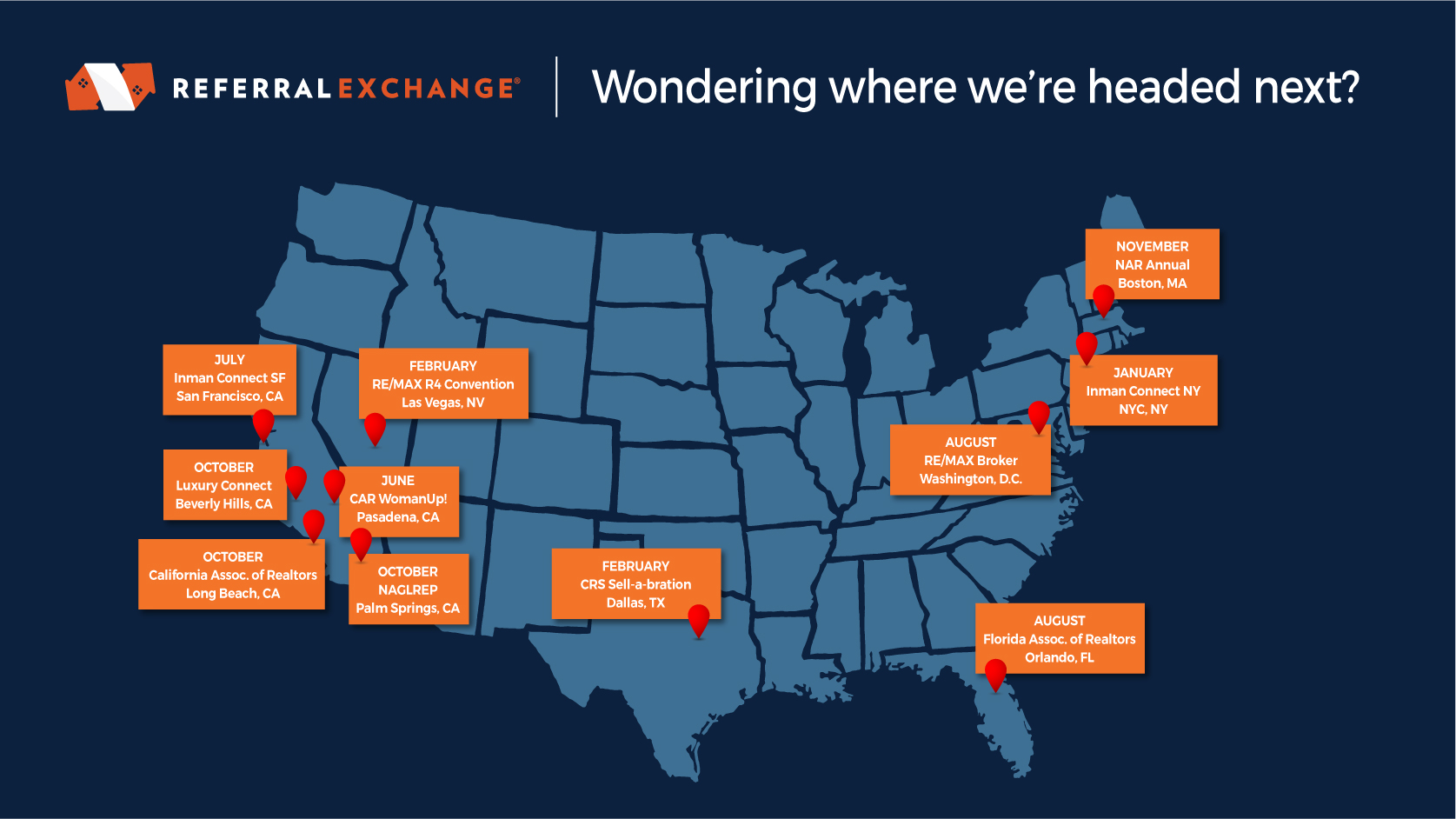“Without a strategy, you’re just throwing something against a wall and hoping that it sticks.” –Katie Lance
Real estate is filled with lead and referral opportunities but finding the right ones that work for your business can be challenging. Social media expert Katie Lance and our VP of Marketing Lisa Fettner recently hosted a webinar to discuss how to track your lead gen, focus your referral efforts and create content that attracts the clients you want to work with.
Follow these simple steps to identify referral sources that will help you create and sustain a business you love.
Track and manage your lead generation. It’s important to implement a CRM or system that helps track who you’ve worked with, who you want to work with, what you’re going to say to them, where that business is coming from and how you are going to connect and keep in touch with them. As an agent, you’re often working with a variety of different people at the same time – so it’s critical to stay organized and track everything.
Reflect on last year. Take a look back at 2017 and ask yourself:
- Who was your favorite closing? Why?
- What was your best source of business?
- What was one “great idea” a trusted colleague had?
- What were your total number of referrals?
Assessing your previous year of business will help you understand what worked, what didn’t and where you should focus your time. Think about what messaging and topics you talked about that had the best response and resonated with your network. Lisa advised to make a 30-day plan of active communication, take a rest and then follow-up in 60 days, and then follow-up with another touch point in 120 days if you don’t hear from them. Your most active conversations will likely be with those who you connect with in those initial 30 days. The home buying and selling process can take a while, however, so it’s important to continue to touch base for several months after the initial contact.
When marketing yourself, make sure to communicate and highlight your expertise and experience to your clients and prospects in a way that make it about them. If you specialize in single family homes in the suburbs, you could share that you’ve helped five families move into their target neighborhood.
Choose your channels wisely. Today, social media gives us endless opportunities to communicate and connect with clients and prospects. It’s important to choose your social media channels based on what your clients and future clients are using and create content that attracts who you want to work with. Katie suggested asking or surveying your database to find out their preferred platforms and what they like to see when putting together a social media strategy. With all the competing noise on social media, it’s about quality over quantity.
LinkedIn for example, is a great way to connect with new and old contacts. Katie recommended keeping an updated bio, publishing new content and giving/asking for recommendations to generate new business.
Take the referral challenge. Think about how many referrals you did in the past year, and then increase that number by 50% to set your new goal. Download and fill out our Referral Planner to help determine where you can generate that new business – i.e., through friends/family, associations, partnerships, etc. Mapping out these different, everyday contacts you interact with, will open the door for new referral business.
Create the right content. The specific type of content you create and share, will inevitably attract a specific group of people/person. Katie shared a content grid that can help you get started and brainstorm 30+ ideas of what to post – e.g., local real estate info, local & community news, personal interest, home and design.
Good content = good referrals and leads. When you put content out on a consistent basis that has your voice, opinion and personality, people start to recognize and remember you. Video is a great way to help you achieve that given most people retain 95% of the message in a video vs. 10% of what they read in a text. Additionally, people spend 5x more time with video than any other type of content on Facebook – even more reason to Facebook Live your open house tour!
Lisa emphasized how powerful storytelling, being relevant and adapting content through customizable templates can be when attracting new clients. For example, if you’re known for your “best restaurants list,” considering creating one for families with kids and one for empty nesters looking for a perfect date night spot. Don’t be afraid to repurpose content and share it everywhere.
Watch the full webinar here and download our free Referral Planner.











